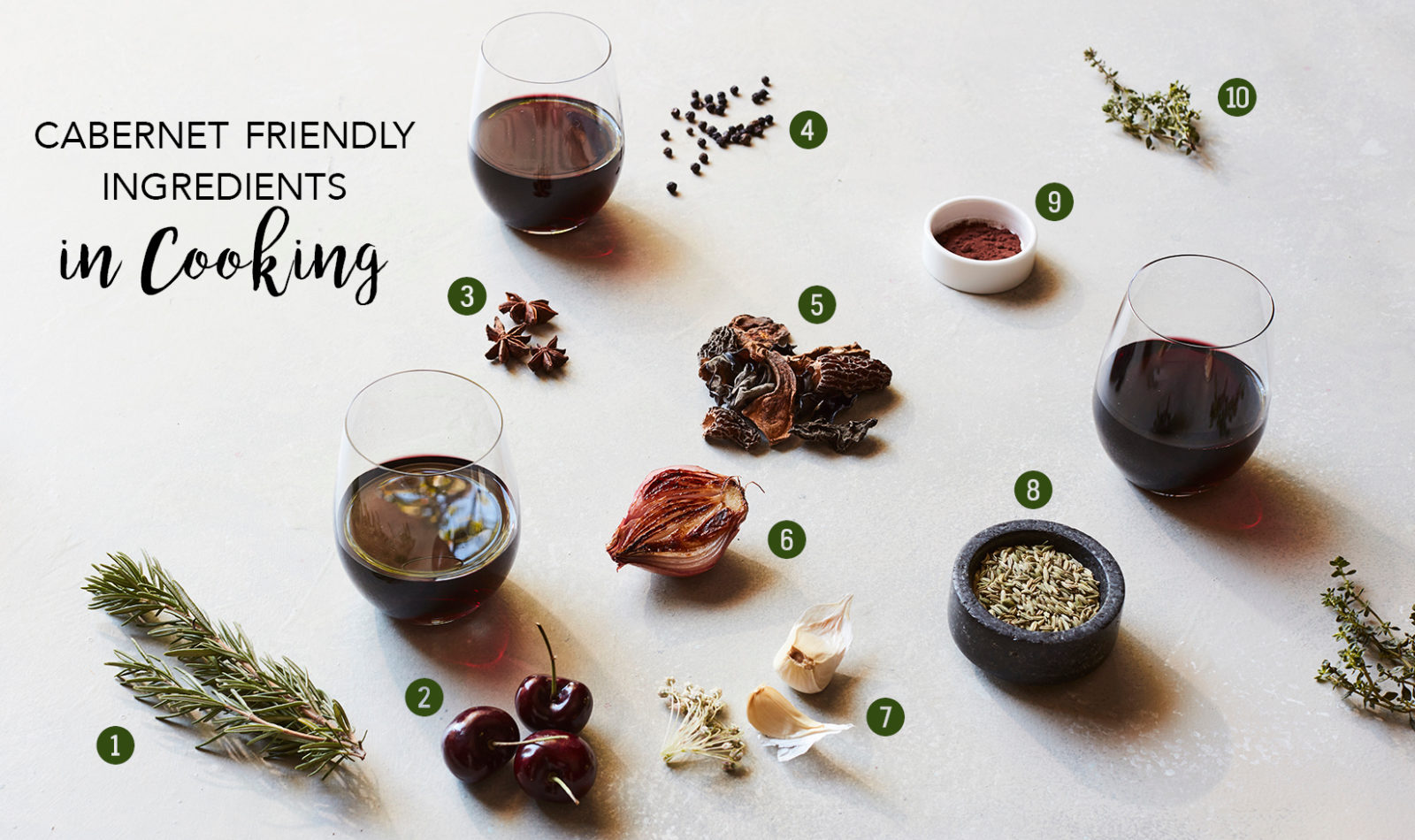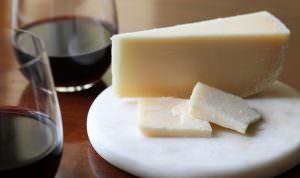
Food Pairing for Cabernet Lovers: What Spices Go Well With Red Wine
Cabernet sauvignon was made for food. Layered and complex, it pairs seamlessly with dozens of dishes, from steak au poivre to herb-crusted lamb. Along with the classics, cabernet can also be an excellent match for foods such as pork, chicken and duck, which are not normally associated with such a deep, rich wine. The trick is to use bridge ingredients like herbs and spice to connect elements in the food with those in the cabernet. This may be as simple as adding a sprinkle of chopped fresh herbs or cracked peppercorns to a dish just before serving, or introducing an earthy element that enhances a similar note in the wine. Here are my eight favorite dried fruits, herbs, spices that go well with red wine, and many of these may already be in your pantry. Adding these to recipes always makes Jordan Cabernet Sauvignon shine in delicious and unexpected ways.
What Spices Go Well with Red Wine: Cabernet Sauvignon Food Pairing Tips
1. ROSEMARY
Herbs such as thyme, rosemary and sage reflect the subtle notes in the wine. Rosemary is considered one of the most wine friendly of all herbs due to its earthy, almost woodsy flavor. Many chefs also swear that hard herbs like rosemary also pair better with red wines while soft herbs (think chive and dill) work better with white. Add freshly chopped rosemary to dishes at the last moment to elevate cabernet’s classic dried herb notes. Dried rosemary can also be substituted, though its scent and flavor will be more powerful than fresh in the pairing. (The general rule is that one teaspoon of dried equals one tablespoon of fresh.)
2. DRIED OR FRESH FRUIT: CHERRIES, BLACKBERRIES and CURRANTS
Cabernet’s dark fruits can be elevated by adding dried or fresh cherries, blackberries or currants to sauces or glazes. Though not a spice, dried fruits are an easy ingredient to add into recipes to elevate a red wine pairing.
3. STAR ANISE
This Asian spice’s aroma can often be found in cabernet, so it does a beautiful job of connecting the wine to many dishes. Use ground star anise to season roasted duck, or simmer whole pods into broths. It makes a great addition to winter soup recipes.
4. PEPPERCORNS
Black pepper’s pungent flavor is a natural complement to the berry notes found in cabernet. Simmer peppercorns into sauces during the last five minutes of cooking to preserve their aromatics, or grind peppercorns with fennel seeds to create a spice rub. Pepper is one of the most versatile spices that goes well with red wine. That’s why you find it in so many dry rub grilled steak recipes.
5. MUSHROOMS: FRESH OR DRIED
Mushrooms play off of cabernet’s earthy, oak-aged character and add a savory note to sauces, vinegars and stews. Dried porcini add complexity to risottos, soups and pastas—or simply sauté them in butter. Mushroom crostinis are also a nice vegetarian appetizer for a red wine pairing.
6. CHARRED SHALLOTS
The savory flavors of caramelized onions can stand up to red wines’ tannins. Use charred alliums in consommés and sauces, or serve as an edible garnish. The charred flavor complements the wine’s toasted oak nuances. Or add them to grilled vegetables or your favorite mashed potatoes recipe.
7. GARLIC
Garlic is extremely versatile in wine pairing–red or white. Like shallots, garlic cloves are umami-rich, pungent alliums. Roasting garlic gives it a caramelized note that softens the perceived dryness of the wine, making it taste even smoother. It’s no surprise that so many of the red wine sauces in recipes include roasted garlic.
8. FENNEL SEEDS
With its licorice-like character, fennel is another classic aroma descriptor for cabernet. Incorporate fennel seeds into spice rubs for roasted meats or add dried fennel pollen to vinaigrettes for a subtle anise spice. Fennel seeds always find their way into my pork tenderloin and porchetta recipes. I even like to add fresh grilled fennel to a green bean salad for a healthy cabernet sauvignon wine pairing recipe.
9. COCOA POWDER
Cocoa powder adds depth to savory sauces and long-braised dishes such as coq au vin. It also picks up some of the dark chocolate notes in the wine. You can add cocoa powder to dry rub recipes, grilled short ribs and other spice medleys for grilled meats to bring out the best in cabernet.
10. THYME
Like rosemary, thyme is a hard herb with pungent, earthy notes–notes that complement the natural earthiness found in the best cabernet sauvignon wines. Freshly chopped thyme truly elevates cabernet’s subtle herb notes. Dried thyme can be substituted, but its flavor will be more concentrated, so use less.
MINT
Though not pictured, mint also enjoys a real affinity with cabernet sauvignon, especially when used in lamb dishes. Mint crushed rack of lamb is a well-known recipe, and I also like to include mint in my grilled lamb burgers recipe.
TOASTED NUTS
While nuts aren’t technically a spice, they can certainly act like one in the wine pairing department. I like to add toasted hazelnuts or black walnuts to cabernet sauvignon food pairing recipes because nuts have bitter notes from tannins–just like red wines. Toasted hazelnuts and hazelnut oil, when added to a grilled asparagus recipe, make the somewhat wine-unfriendly vegetable complement cabernet. A beet salad with black walnuts totally works for a healthy red wine pairing too. My spiced nut recipe also incorporate fennel pollen for a double dose of cabernet friendly ingredients.
Now that you’re ready to raid your spice cabinet, it’s important to keep a few food-and-wine pairing basic rules in mind. First, the ingredients are either going to complement or contrast with a component that’s in the wine. Because Jordan’s Cabernet Sauvignon tends to lean toward darker fruit flavors, I often include blackberries, black cherries or currants in glazes. For an older vintage cabernet that has lost some of its fruitiness, I gravitate toward earthy bridge ingredients. If I use bright fruit in the dish, I risk overpowering the fruit in a wine, particularly in the case of an older cabernet sauvignon, while subtle notes are fading and precious. Instead, I would go with something like mushrooms, so I’m not competing with the subdued fruit in the wine.




Is there more information? I would love a longer and more exhaustive list. This is the only list I can find that is actually a list of recommended seasonings for cooking with red wine rather than a list of herbs and a suggested wine for “pairing” (usually meaning drinking), making it the only useful list I’ve come across! I’m trying to craft some new recipes, and I would love some more in depth resources.